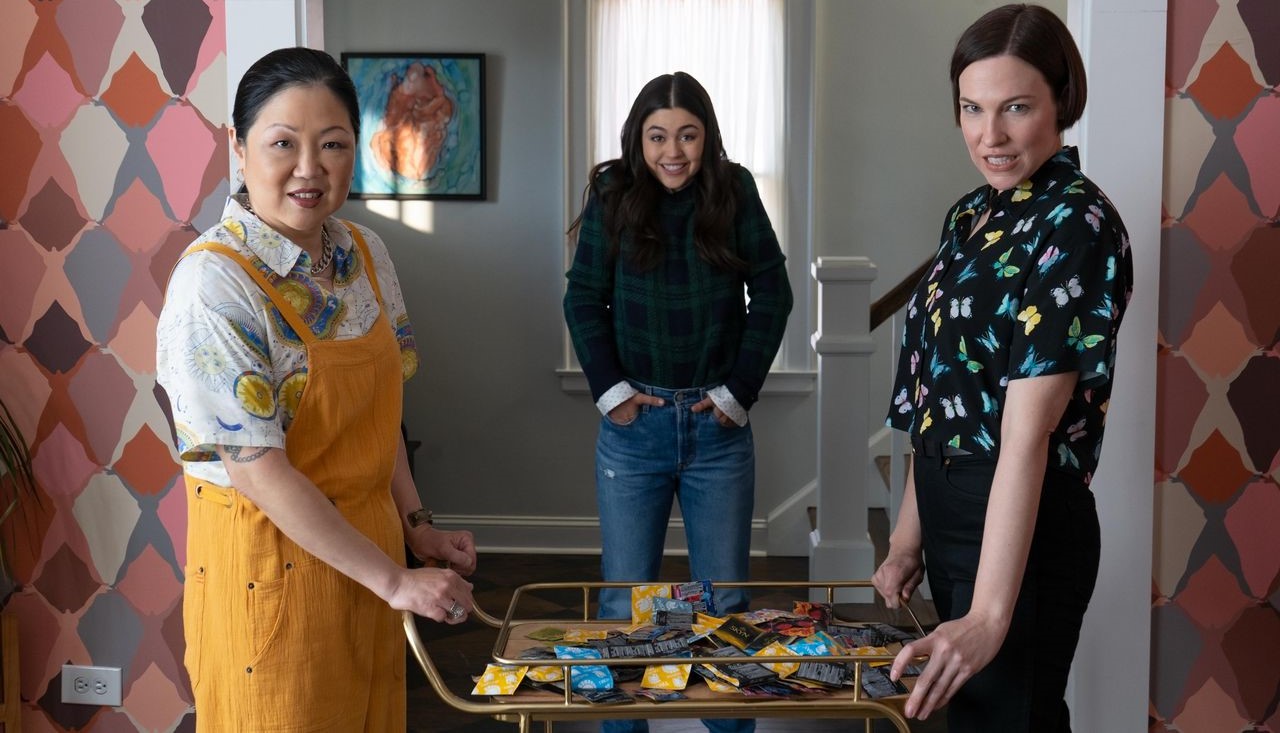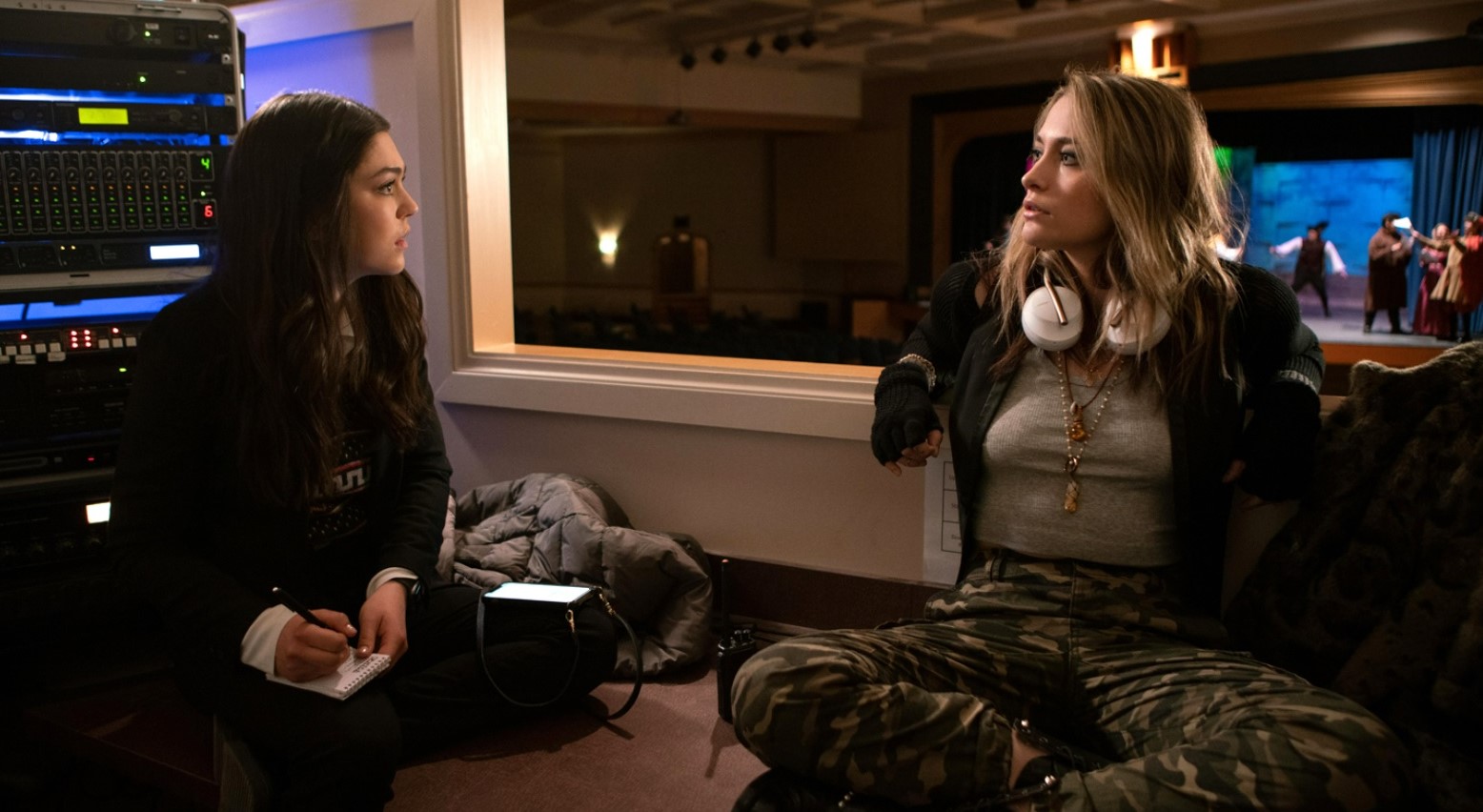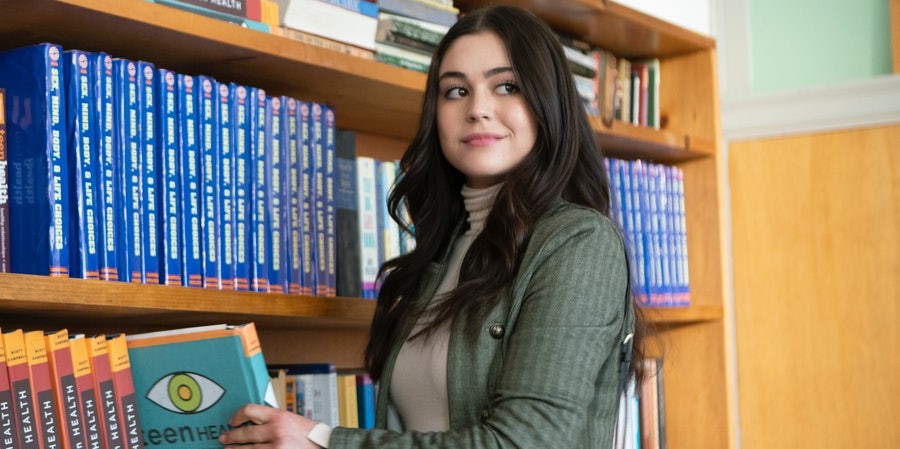Directed by Talia Osteen, Hulu’s ‘Sex Appeal’ is a comedy-drama film that revolves around a studious high school senior named Avery Hansen-White. The teen movie focuses on Avery’s perfectionism and how it hinders her quest to understand sex. Soon, chaos unfurls when she creates an app for sexual help and turns to her best friend, Larson, to figure out how to please her boyfriend, Casper.
The heartwarming rom-com attempts to destigmatize the topic of sex by portraying everyday high schoolers and their humorous sexual experiences. Rejecting common and sexist tropes — such as the unpopular nerdy girl trope or the promiscuous cheerleader trope — the Osteen directorial tries to capture the awkwardness and delight of teen sexual awakening in a wholesome manner. Since the premise seems quite realistic, many are wondering whether the film derives from real persons and events. So, let’s find out if ‘Sex Appeal’ is based on a true story.
Is Sex Appeal a True Story?
No, ‘Sex Appeal’ is not based on a true story. However, it borrows from very real concerns regarding teen sex, mental and physical health, and academic growth. In fact, Mika Abdalla revealed that she relates to her character of Avery, as she too was very worried about her grades in high school. “Regardless of what your actual high school experience is as a teenager — learning about sex, thinking about having sex, not wanting to talk to your parents about it, or having to turn to your peers — I think this is something that everyone goes through,” she said.

Indeed, Abdalla also stated that she would have liked a movie of this sort in her teens as it would have helped her appreciate high school more. Osteen too remarked, “This [‘Sex Appeal’] is the movie I wish I had when I was in high school.” The film explores Avery’s adventures as she builds a sex help app called Sex Appeal in order to win STEMCON 2022, the topic of which is to solve a personal problem. Knowing that Casper wants to have sex, Avery turns to her three mothers, classmates, and Larson for help.
Soon, Avery starts practicing sexual activities with Larson in order to get data for her app. However, she continues to shun the idea that romantic feelings are needed for good sex, relying fully on her logical and objective perspective towards mental and bodily processes. Soon, the “friend-zoned” Larson and Avery have a falling-out since he feels misused and unappreciated by her. Avery then has an underwhelming sexual experience with Casper and decides to drop out of the competition. Thus, the film touches upon common high school experiences pertaining to academics, friendships, and romantic relationships.
Although the film is an exaggerated teen comedy at its core, what makes it interesting is that it firmly dismisses tropes that have dominated rom-coms and high school movies for decades. Avery realizes that she loves Larson but he does not take her back; however, they respect each other’s decisions and Avery even sets him up with his crush, Lyssa. Avery then goes to prom on her own and enjoys herself with her classmates. “I think there’s a unique perspective telling this story. I don’t think I’ve ever seen this story from the side of a woman where she’s very open about her sexuality. I think it’s really important, especially right now,” confessed Jake Short (Larson).

In fact, an intimacy coordinator was available to the actors to help them prepare for the sex scenes and ensure their general well-being. Thus, the ideas presented onscreen were put to use offscreen as well. Additionally, the personalities of many of the characters seem to be inspired by the actors playing them. “My character wears combat boots and listens to death metal. That’s how I was in high school,” stated Paris Jackson (Danica McCollum). “I definitely tapped into my experience with my first love in junior high [for ‘Sex Appeal’]. And, you know, it took me five years to get over that.”
“For me, it’s a very innocent film. There’s a raunchiness to it, but it’s a very weird thing,” opined Margaret Cho (Ma Deb). “I’m 53, my parents still haven’t told me where babies come from. As far as they’re concerned, I don’t know [about sex]. How would they expect me to know these things? Growing up in the ‘80s, like, we just found out [about it] from other kids.” Thus, there’s an educational aspect to the coming-of-age film as well, showing parents the need to talk to their kids about sexual well-being and informing teenagers about the importance of safe and mutually pleasurable sex.
‘Sex Appeal’ might not be based on a true story but it taps into teenagers’ everyday realities and concerns regarding sex and love. Using fiction and humor, it highlights that it’s necessary to have a healthy mental and physical relationship with one’s own self as well as with others. Thus, it encourages conversations about sex between parents, teens, and teachers.
Read More: Sex Appeal Ending, Explained: Does Avery Win STEMCON?

